
Gwent is all about collecting cards, milling unwanted cards into scraps, and crafting new cards to add to your decks. Knowing when to mill cards, knowing when to keep cards, and knowing when to craft new cards is essential to building the best deck possible. Let's take a look at managing card collections and decks in Gwent.
Collecting scraps
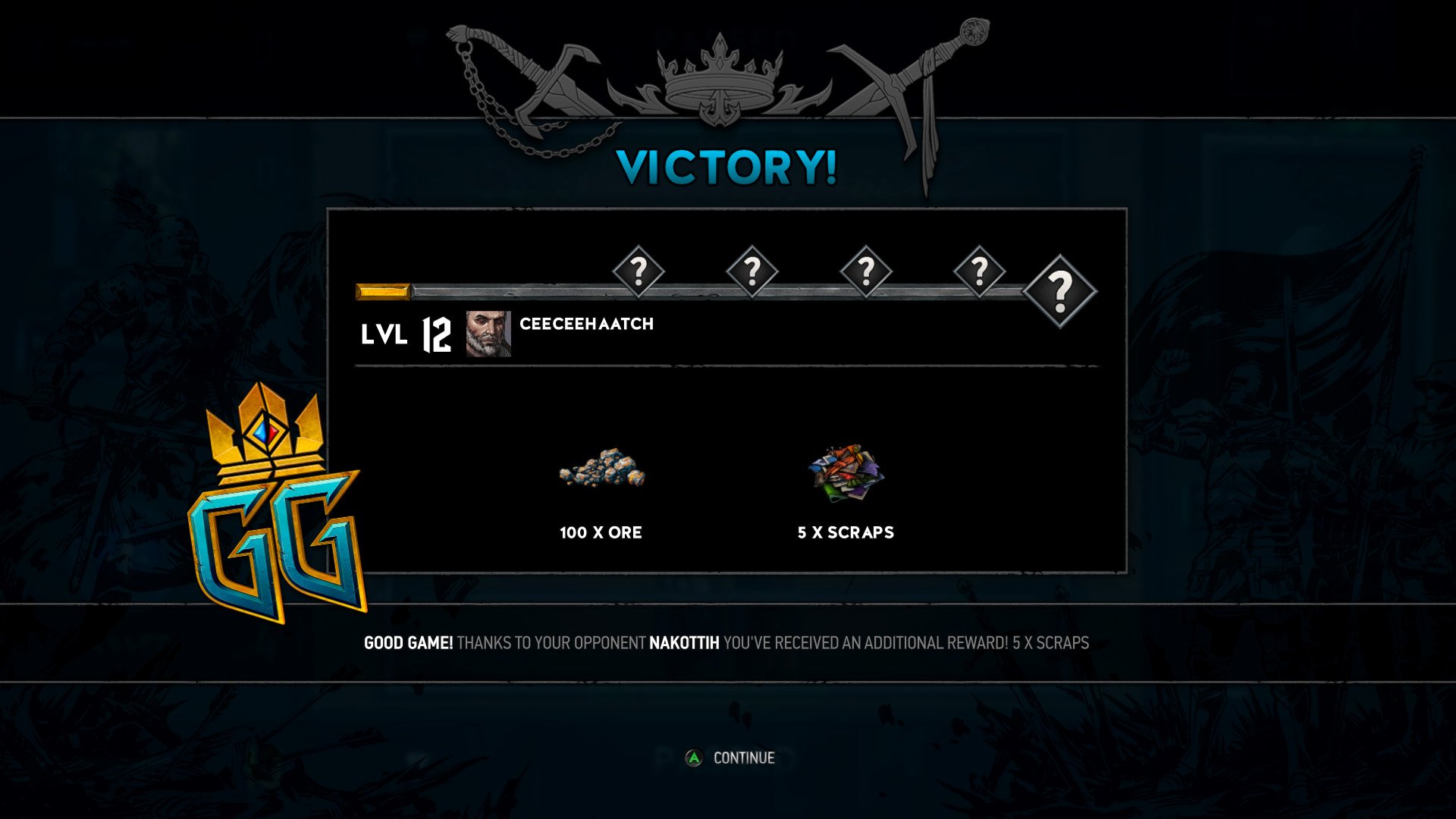
There are two ways to collect scraps in Gwent. When you win a match, you will sometimes be rewarded with a small amount of ore or scraps depending on what your level bar looks like. Winning a match will sometimes get you nothing.
The other way to collect scraps is by milling cards already in your collection. This completely destroys the card forever, so you want to choose carefully.
Your card collection
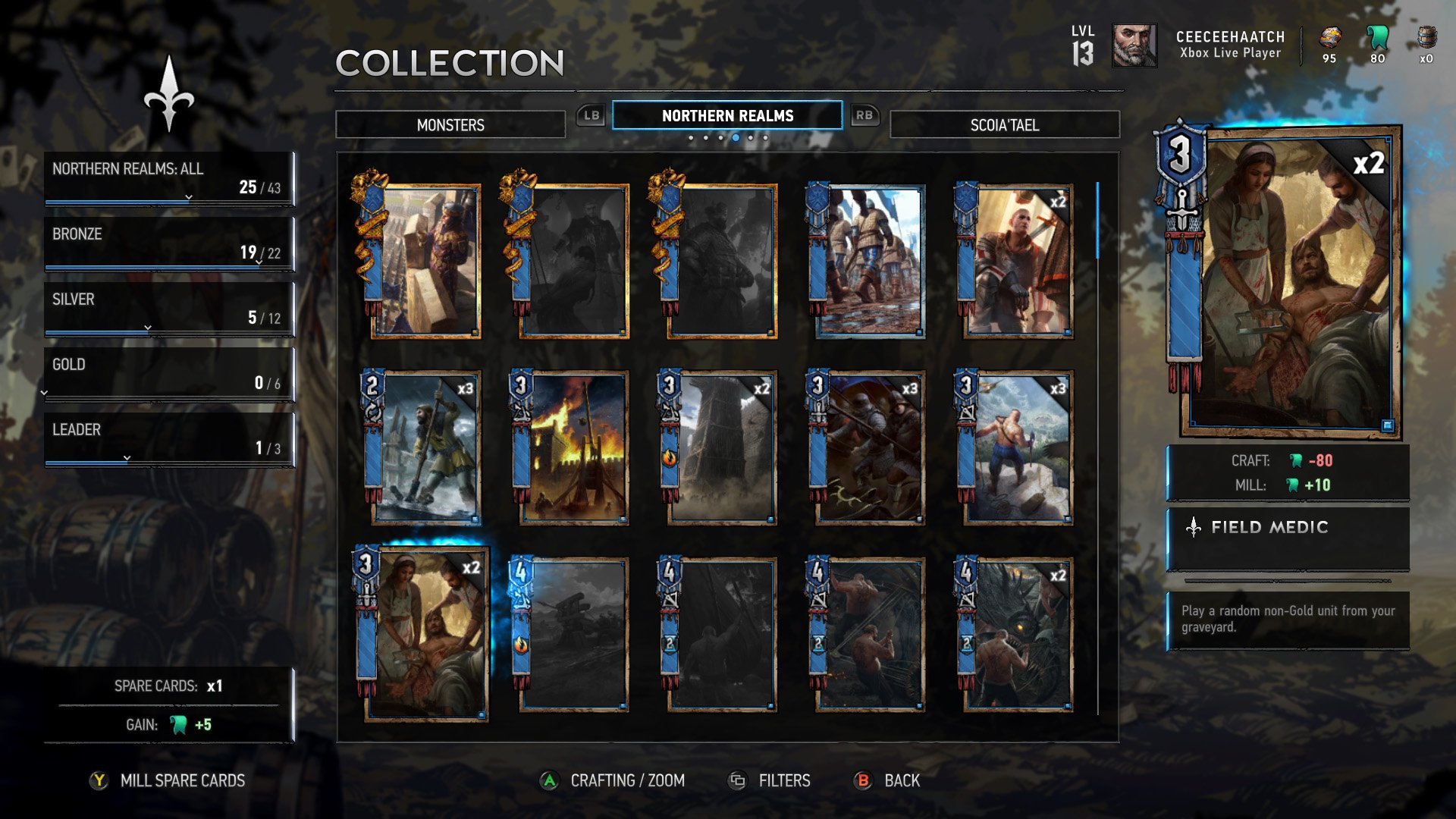
The card collection menu is where you can view all the cards you own, all the cards you can craft, and all the cards you can mill. This menu can be quickly sorted by faction, or you can search for certain rarities or even specific cards.
You will find most of your time in the card collection menu is spent reading up on cards in your deck and attempting to form a strategy. This is also a great place to review the cards of decks you do not play in order to understand how they work and how to best counter them.
When you should mill cards
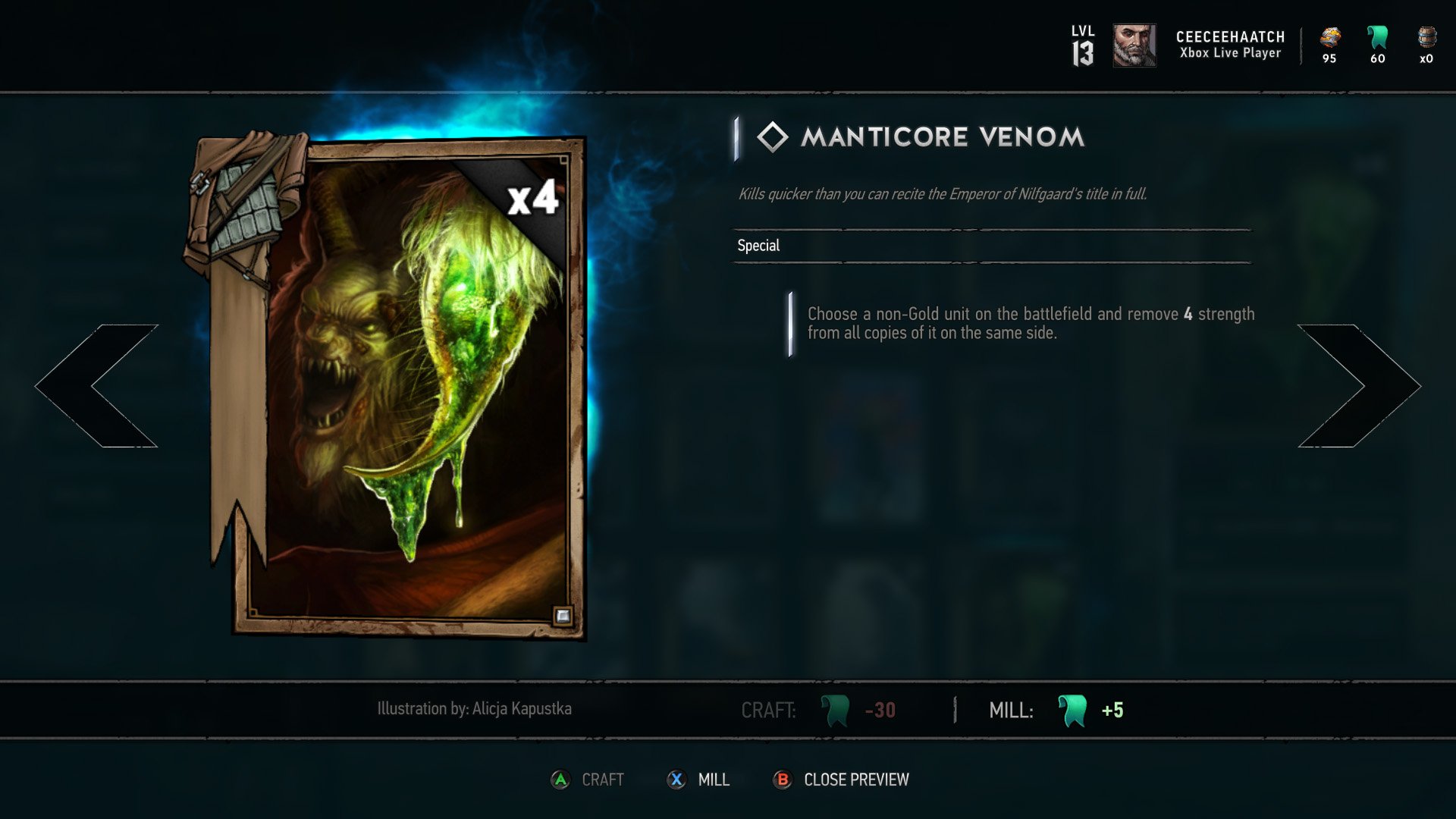
As you level up, collect ore, and purchase kegs of cards, you will no doubt receive plenty of duplicate cards. You can only have a maximum of three of the same card in your deck at once, and many cards max out at one. If you have four or five copies of a card, you might as well mill some of them down for scraps.
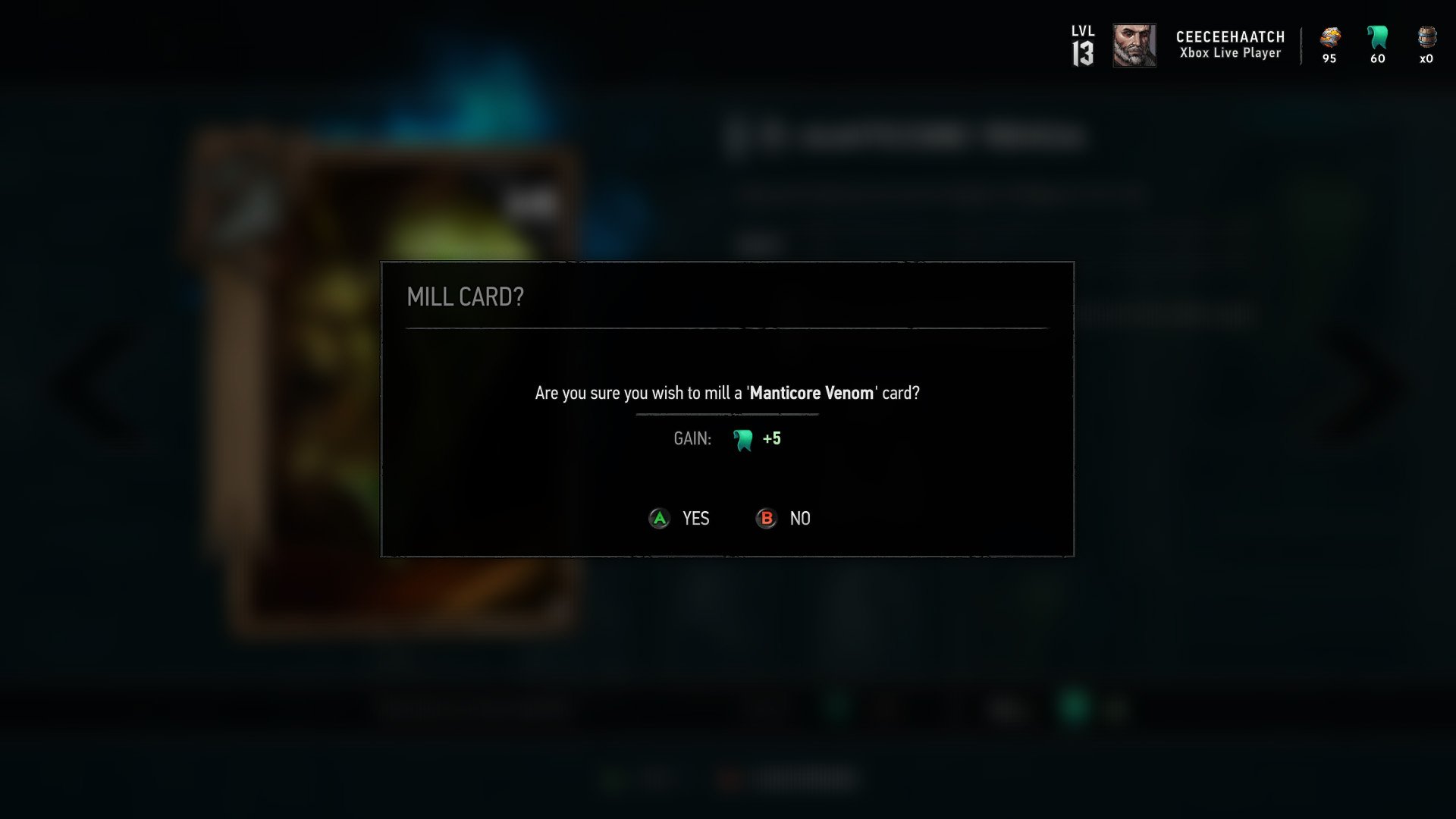
Keep in mind that card use is not affected across decks. For example, if you use three Adrenaline Rush cards in a Northern Realms deck, then want to use the same three Adrenaline Rush cards in a Monsters deck, you will only need three Adrenaline Rush cards in your entire collection.
Get the Windows Central Newsletter
All the latest news, reviews, and guides for Windows and Xbox diehards.
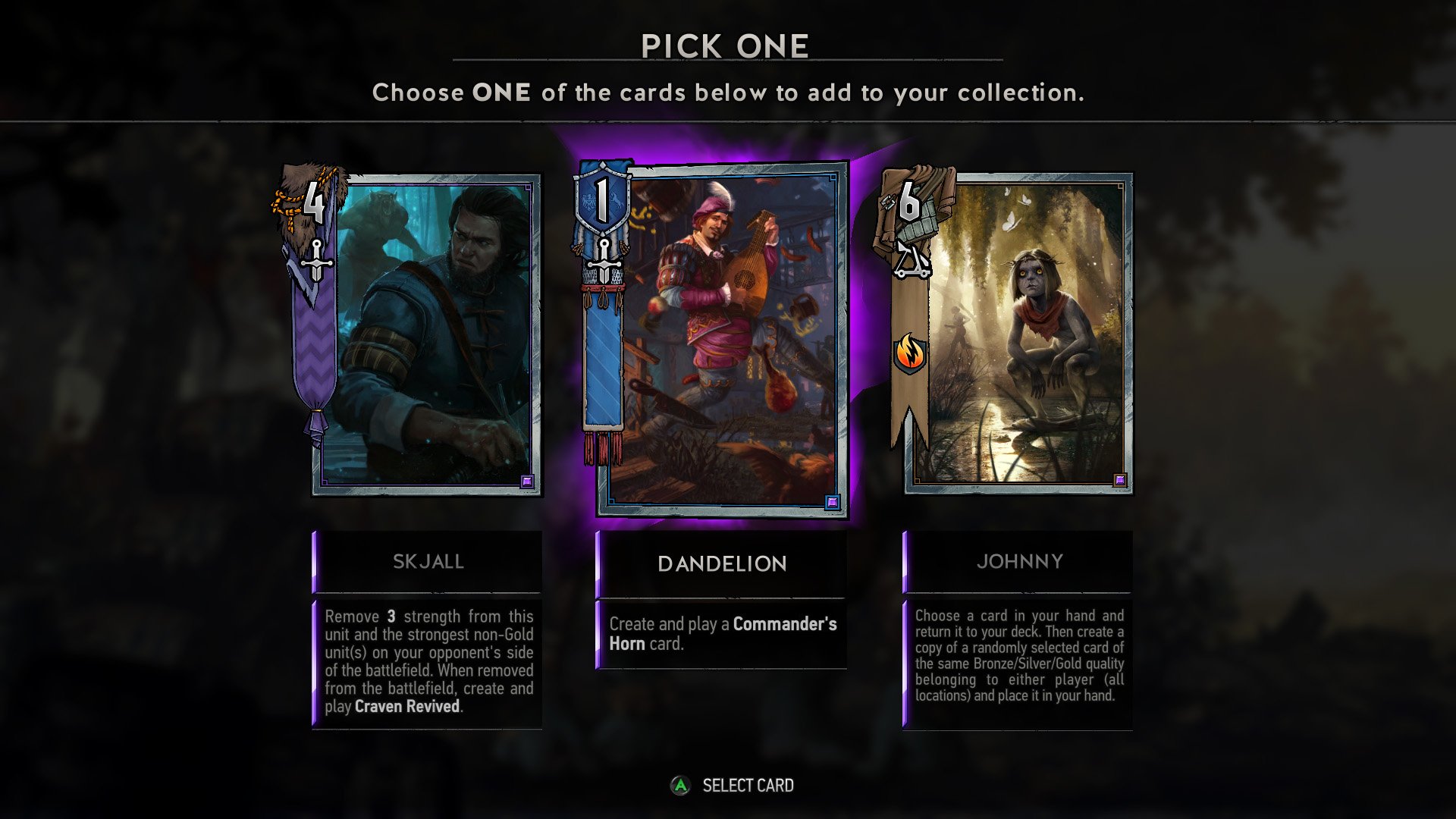
You might be tempted to mill cards from decks that you're not currently interested in. This is generally considered a bad idea. The small number of scraps you receive against the fact that you completely destroy a deck just isn't worth it. Even if you're not currently playing one of those starter decks, the time will likely come when you want to experiment. Building a deck from the ground up without even a starting leader is incredibly difficult.
Crafting new cards

Scraps are used to craft new cards. Any card in the game can be crafted, with some of the rarest cards costing upwards of 800 scraps. It's probably best to build out a solid deck with lesser cards so that you can start winning — card kegs will get you some really decent cards when you start leveling up.
There are exceptions to every rule. If you have a deck built that needs just one more card, go ahead and save up scraps to craft it. One powerful card can completely change how a deck full of lesser cards performs.
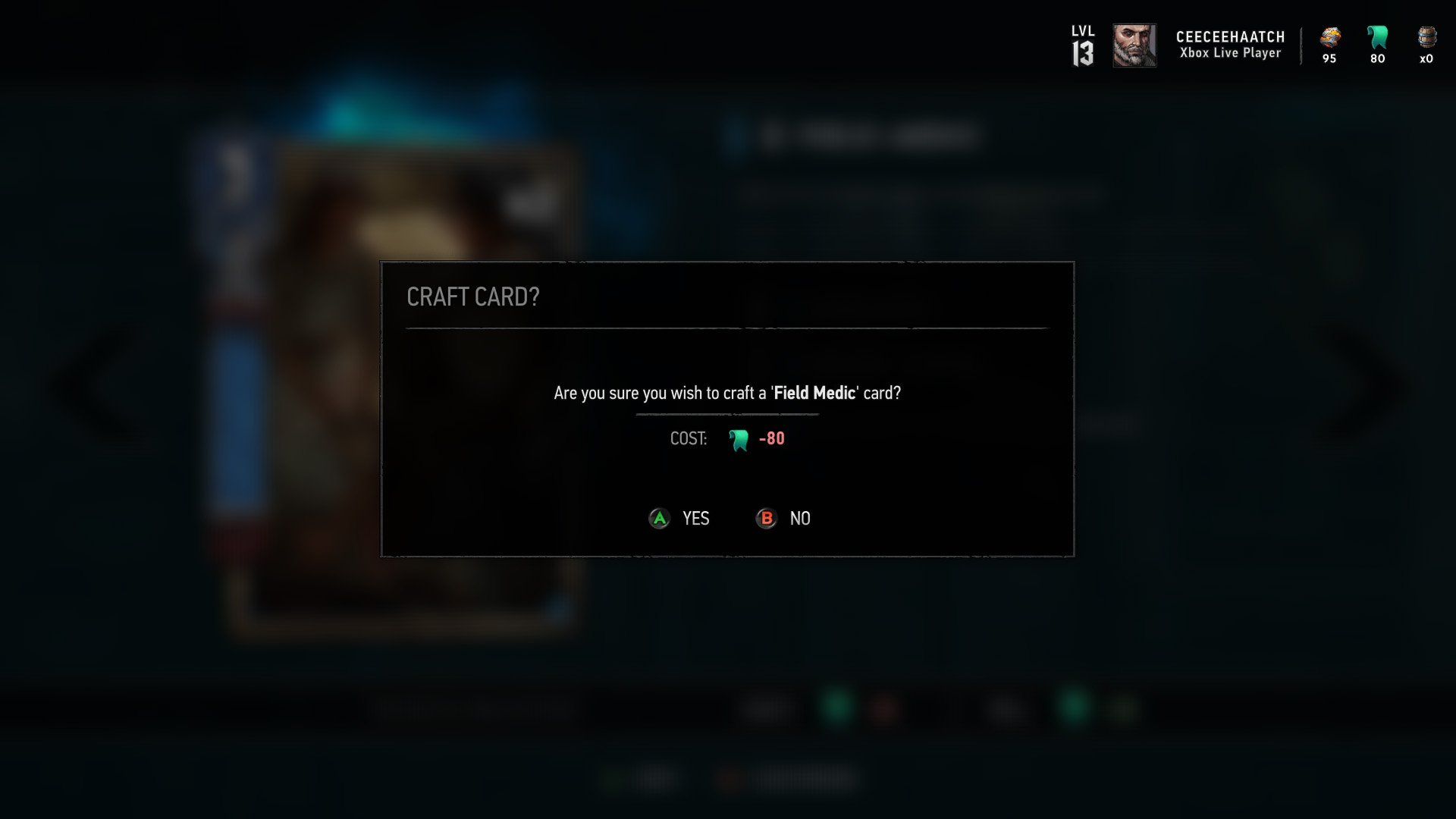
To craft a new card, all you have to do is select it from the card collection menu and choose Craft. As long as you have enough scraps, you'll craft one copy of the card.
Building a deck
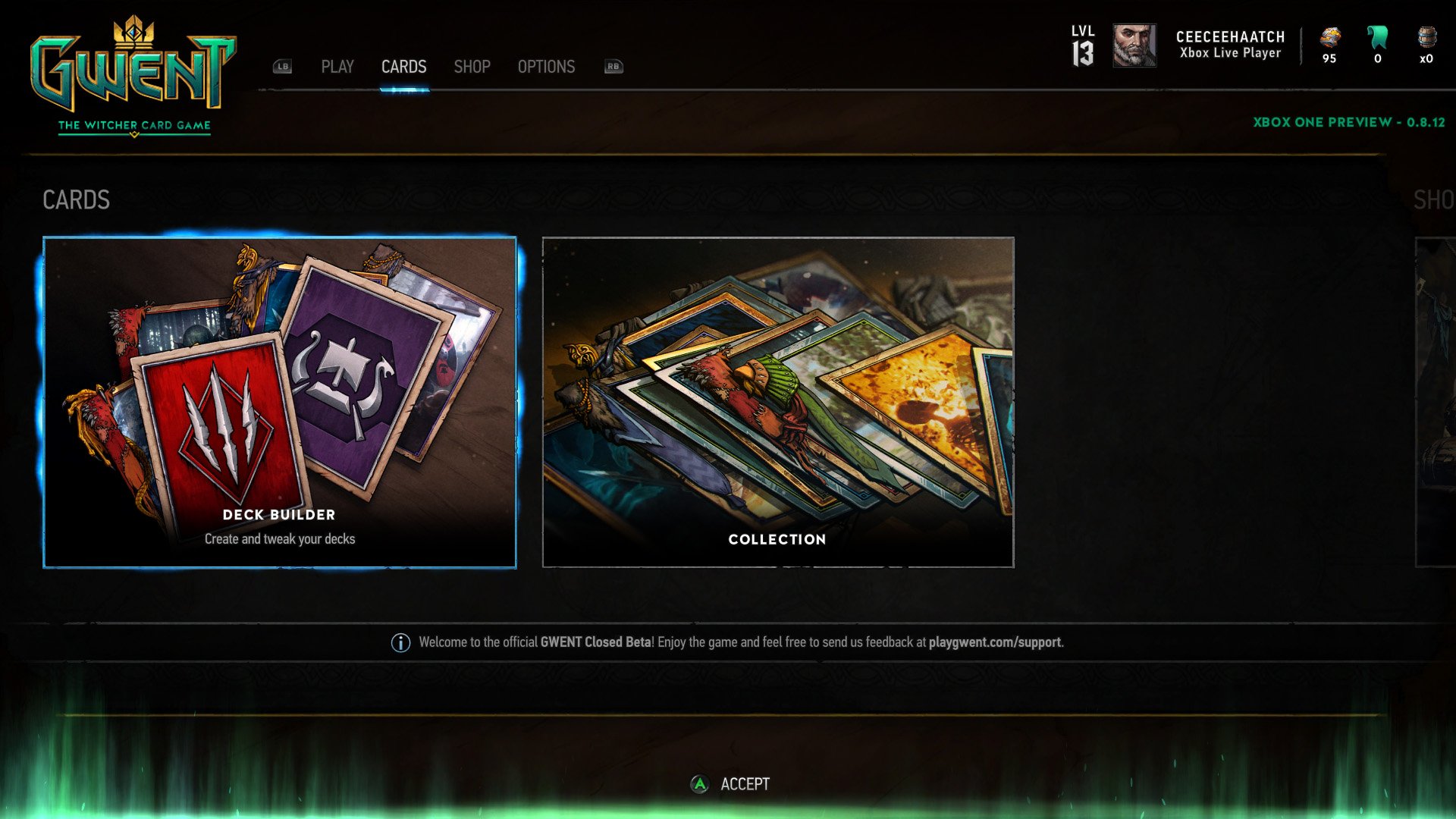
Now that your collection of cards has grown, you can move past the starter decks and create your own deck. Choose the Deck Builder option from the main menu, choose to customize an existing deck, or create an entirely new deck and go nuts.
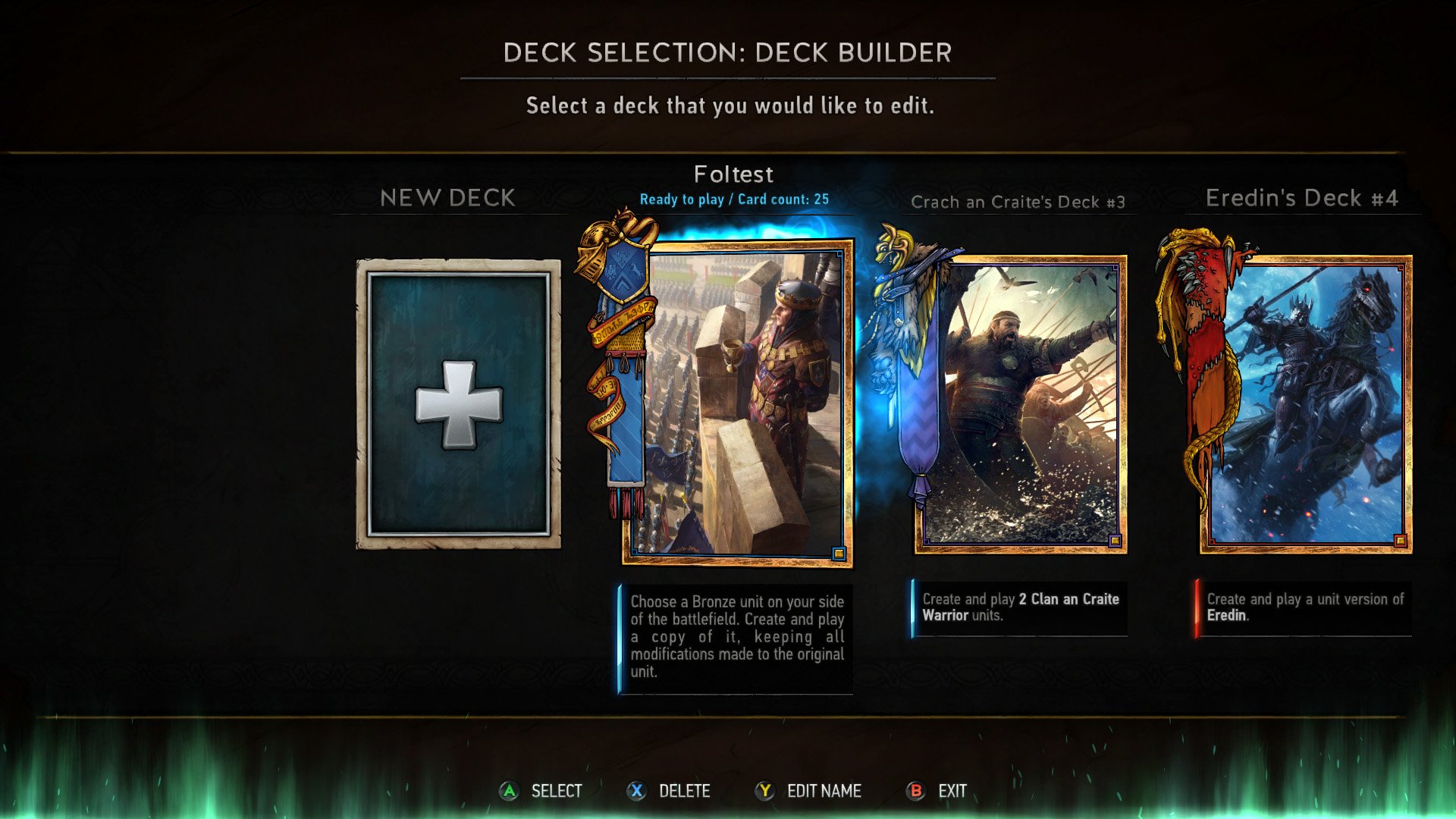
You can sort your cards by bronze, silver, and gold to make building your deck easier. On the left side of the screen, you'll see how many cards are currently in the deck, and whether or not it's ready for competition.
You can have a maximum of 6 silver cards, 4 gold cards, and 40 cards overall. Bronze card numbers are only limited by the overall deck number. Having a lot of cards in your deck isn't always a good idea unless your strategy demands it. You'll find it much harder to draw a card you're looking for from a large deck and will likely end up with a fist full of useless cards.
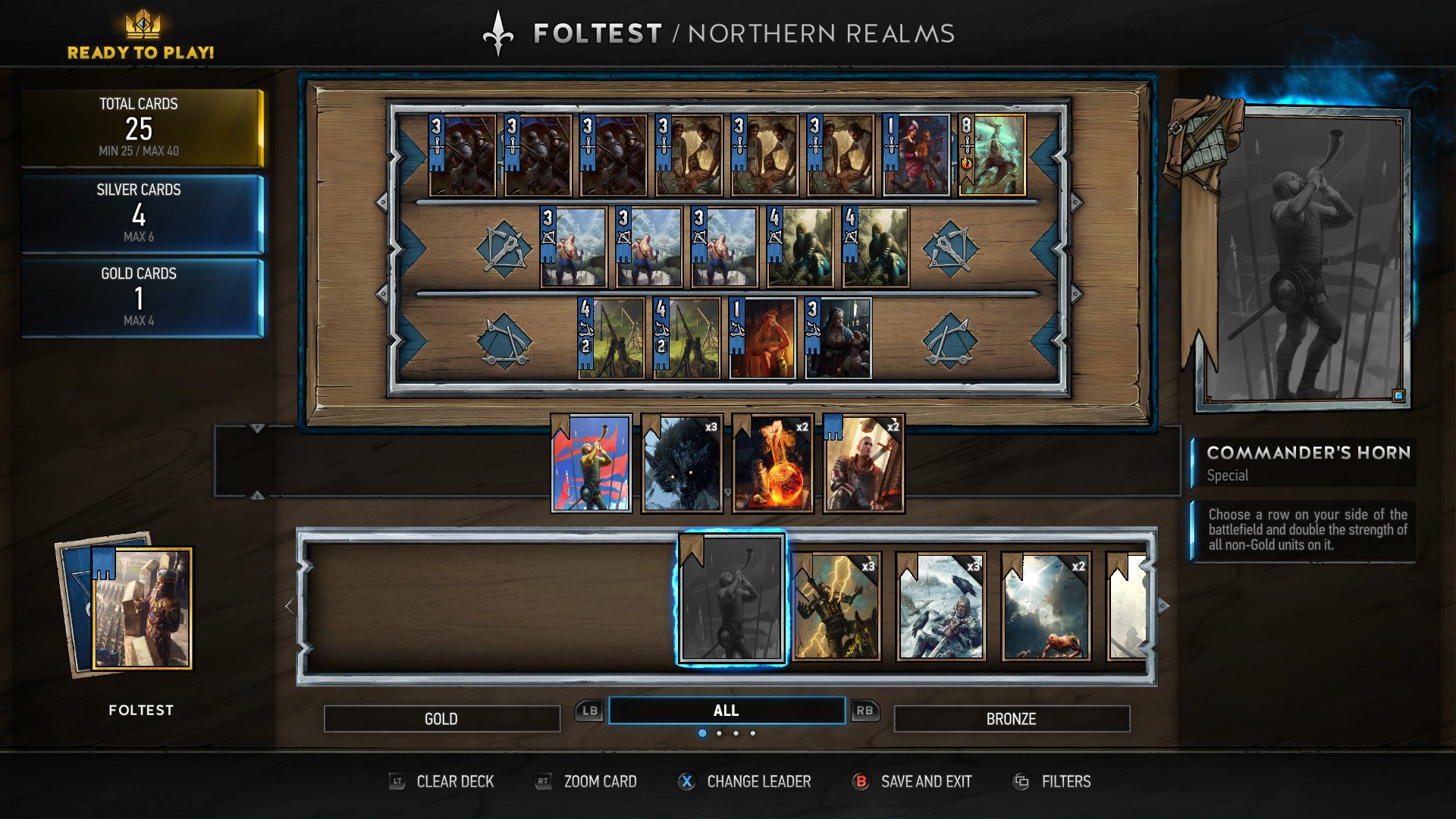
When you're finished building the deck, take it into battle and see how it fares. Fret not if your first few decks don't work exactly as you intend. It often takes quite a few tweaks to get something good going.
Your decks
Have you been milling cards from your collection? What's the best card you've crafted? Let us know in the comments section below!

Cale Hunt brings to Windows Central more than eight years of experience writing about laptops, PCs, accessories, games, and beyond. If it runs Windows or in some way complements the hardware, there’s a good chance he knows about it, has written about it, or is already busy testing it.
